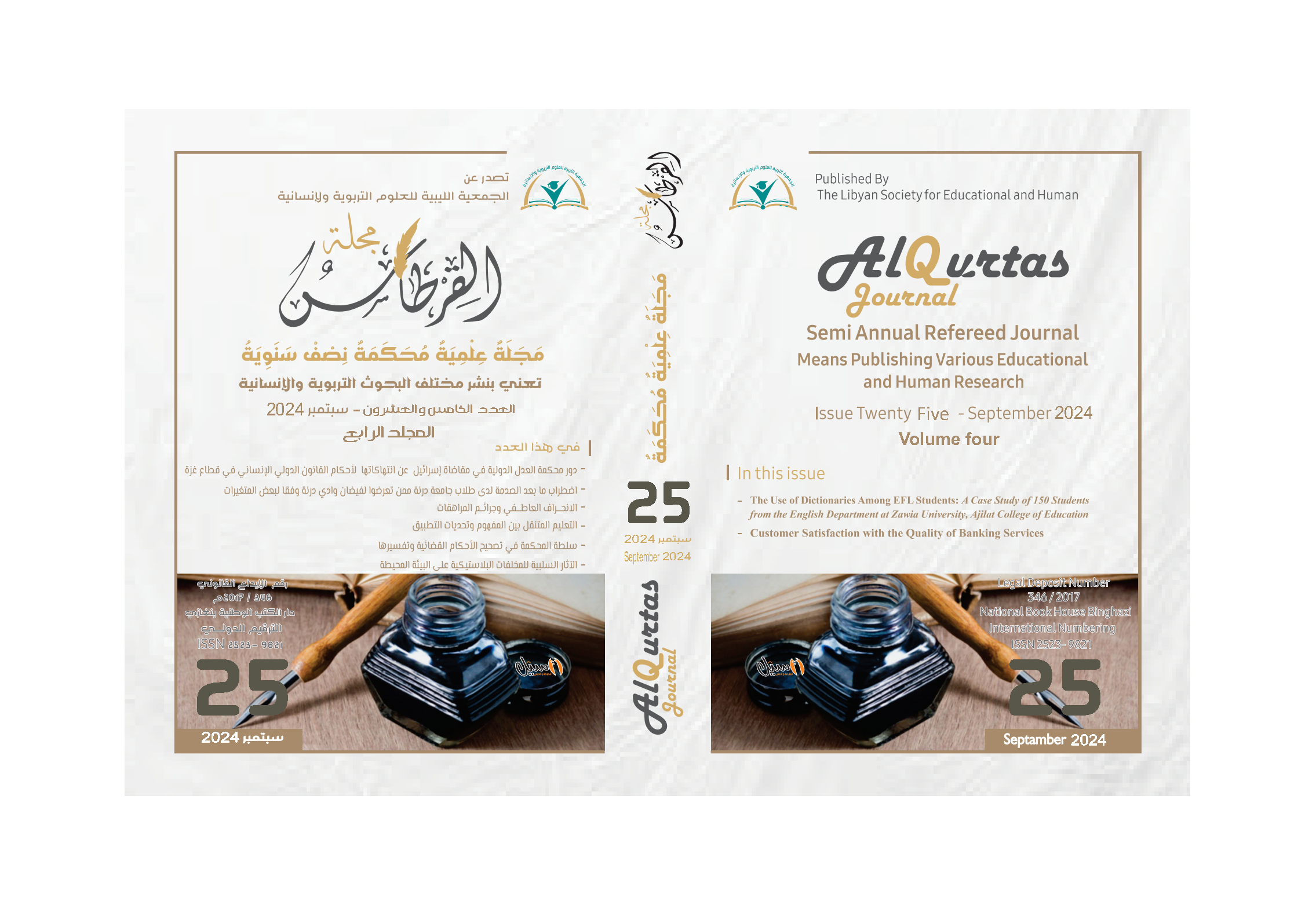The Use of Dictionaries Among EFL Students: A Case Study of 150 Students from the English Department at Zawia University, Ajilat College of Education
Contenu principal de l'article
Résumé
This study investigates the patterns and preferences of dictionary use among 150 English as a Foreign Language (EFL) students from the English Department at Ajilat College of Education, Zawia University. The research employs a descriptive case study approach, utilizing both quantitative data from structured questionnaires and qualitative insights from semi-structured interviews. Findings indicate that 82% of students use dictionaries regularly, with a majority (60%) relying on bilingual dictionaries. Monolingual dictionaries (25%) and electronic dictionaries (15%) were less frequently used, largely due to students’ unfamiliarity with these tools and challenges in navigating complex dictionary entries. Interviews revealed that many students prefer bilingual dictionaries for quick comprehension, but a minority recognize the benefits of monolingual dictionaries in deepening their understanding of English vocabulary. The study highlights a need for more targeted dictionary training and resource integration within the EFL curriculum. It also recommends workshops and curricular reforms to encourage more effective dictionary use, particularly the transition to monolingual and electronic dictionaries for advanced learners. Limitations of the study, such as its focus on a single university, are acknowledged, and future research is suggested to explore dictionary use across multiple institutions and its impact on specific language skills
